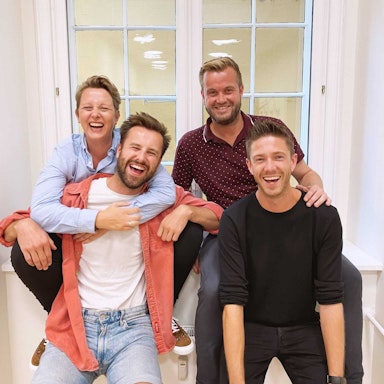Denmark tests flexible GovTech tenders: Aiming high by going small
It should be easier for small, innovative companies to bid on government contracts without becoming stifled during a slow tendering process. The Danish Ministry of Industry, Business and Financial Affairs are in cooperation with the Agency of Digitalisation currently running a project to investigate how to improve this situation, and the project is entering an exciting phase.

One of the great paradoxes of digitalisation is that those who have the best ideas are not necessarily the ones chosen to provide the services that maintain Denmark’s status as a digital leader on public digitalisation
On the contrary, the way government contracts are chosen tends to favour companies that have the power to participate in a large and lengthy tendering process, which can be costly and demanding.
Niels Martin Andersen, who is a chief consultant in the Danish Ministry of Industry, Business and Financial Affairs and project leader on the GovTech program at, believes that “the public sector, in some cases, hedges risk too much. We must not overlook the solutions that smaller companies can provide, because otherwise, we will shoot ourselves in the foot. We have to take it very seriously when we hear that many small businesses believe that they do not have the resources to work for the government. The public sector is a huge customer and our actions shape the market, so a good objective would be that everyone should be able to participate.”
Running right now
This is why the Ministry is currently testing a novel method that makes it easier for smaller companies to bid for public sector tenders. The project began almost a year ago but is just now reaching a critical phase.
“One of the things we want to address is how we get better at buying in. There are small quirks we have to learn, and we need to enable experiences that lead to yet more knowledge and familiarity. One of the tricks we try to use is that we don’t define and demand solutions in advance, but rather describe specific problems,” says Niels Martin Andersen.
In the experiment, six public institutions have posed a specific problem and asked interested companies for suggestions on how it can be solved.
Help with complaints
An example of this is the European Consumer Centre Denmark (ECC Denmark), an organisation that helps Danish consumers with cross-border complaints within the EU. It is a process that can be administratively heavy for the consumer. The ECC Denmark is therefore via the program assessing to what extent data and automation can offer customers better help and clarity about their rights and opportunities for compensation faster than before.
After an introductory round, three companies were invited to develop and pitch their ideas on how a solution to this problem could come to fruition based on their existing technologies. In this current phase of the project, which will end in February, the different models will be presented.
“If the authorities get a better dialogue with the market, they will also have an easier time creating a set of requirements and specifications for interested parties in the following tender. If you have a complex need and demand a solution without investigating what the market can provide, you can easily miss the mark,” Niels Martin Andersen explains.
The market is bigger than we think
“A part of the goal is to show the challenge-owner that the market is much larger than they might have expected and that smaller innovative GovTech companies can contribute with valuable ideas. The process ends with a regular offering, but along the way, we give smaller businesses an opportunity to learn how the public sector works. That is the knowledge they can use in the future,” Niels Martin Andersen explains.
“Our hope is that others will be able to see something in this problem-driven approach and that more public sector bodies will enjoy the benefits of conducting a thorough market dialogue. Ultimately, we hope that small innovative tech companies can use the program as a stepping-stone to new commercial opportunities.
In addition to the European Consumer Centre, the Danish Agency for Digitisation, the Danish Ministry of Industry, Business and Financial Affairs, the City of Aarhus, the Safety Technology Authority and the Ministry of Environment and Food are also included. The process is handled by the consultant PUBLIC.









